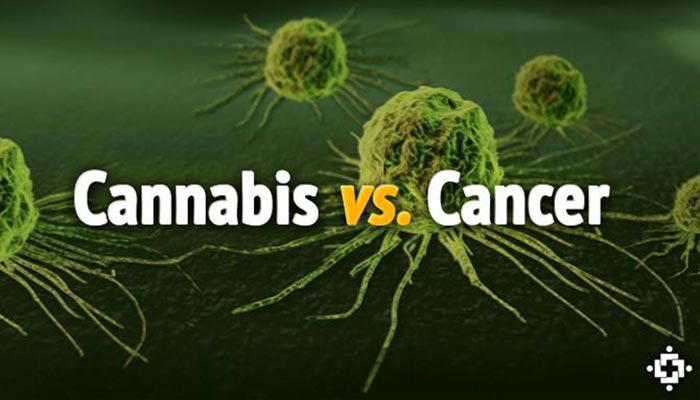Numerous cell and animal experiments have revealed that THC and CBD has anti-cancer properties. Up until now, no medical research studies have been carried out and no conclusion can be made when talking about the usefulness of what it can do for people.
Italian scientists examined the anti-tumor impacts of 5 natural cannabinoids of the cannabis plant (cannabidiol, cannabigerol, cannabichromene, cannabidiol-acid and THC-acid) in breast cancer. Cannabidiol was the most powerful cannabinoid in preventing the development of human breast cancer cells that had been injected under the skin of mice.
CBD also minimized lung metastases stemming from human breast cancer cells that had been injected into the paws of the animals. Scientists discovered that the anti-tumor properties of CBD were brought on by induction of apoptosis. They concluded that their findings support more testing of cannabidiol and cannabidiol-rich extracts for the treatment of cancer.
CBD Slowed The Aggressive Growth Rate Of Breast Cancer
These observations are supported by examinations of United States researchers who learned that direct exposure of leukemia cells to CBD resulted in a decrease in cell growth and induction of apoptosis. In living animals, CBD triggered a decrease in a variety of leukemia cells. In a mouse design of metastatic breast cancer CBD lowered the aggressiveness of breast cancer cells.

CBD prevented a protein called Id-1. Id proteins play an essential function in cell biology. The scientists of the California Pacific Medical Center Research Study Institute concluded that CBD represents the first nontoxic exogenous representative that can substantially reduce Id-1 in metastatic breast cancer cells causing the down-regulation of growth aggressiveness.
Cannabidiol (CBD) hinders the development of new cell vessels, called angiogenesis. Scientist concluded that its result on both growth and endothelial cells strengthens the hypothesis that CBD may represent an efficient agent in cancer treatment.
CBD Oil For Slowing Brain Cancer Growth
In accordance with a research study at the California Pacific Medical Center Research Study Institute, CBD increased the repressive impacts of THC on brain cancer cell growth and survival. The 2 natural cannabinoids were checked on 2 glioblastoma cell lines. THC and CBD acted synergistically to prevent cell expansion.
The treatment of glioblastoma cells with both substances caused substantial modulations of the cell cycle, induction of reactive oxygen types, and apoptosis.
There specified modifications that were not observed with either substance separately, suggesting that the signal transduction paths impacted by the mix treatment were distinct. Scientists concluded that these outcomes recommend the addition of cannabidiol to delta-9-THC to enhance the total efficiency of THC in the treatment of glioblastoma in cancer clients.
Other groups verified anti-cancer results with CBD in glioma and leukemia cells. In the research study on leukemia, a mix of numerous cannabinoids increased the impact on cancer.
CBD and a number of cannabis extracts minimized practicality of prostate cancer cells. In accordance with cell experiments at the University of Rostock in Germany, CBD prevents lung cancer by increasing the concentration of a specific protein (ICAM-1).
At the Complutense University in Madrid, Spain, the results of a mix of cannabinoids and temozolomide (TMZ) were examined in the treatment of glioblastoma multiforme in animals. Administration of submaximal dosages of THC and CBD greatly minimized the development of gliomas.
Additionally, treatment with TMZ and submaximal dosages of THC and CBD produced a strong anti-tumoural property in both TMZ-sensitive and TMZ-resistant growths. Scientists recommended that the combined administration of TMZ and cannabinoids might be the best option for the management of glioblastoma multiforme (stage 4 glioma cancer).




